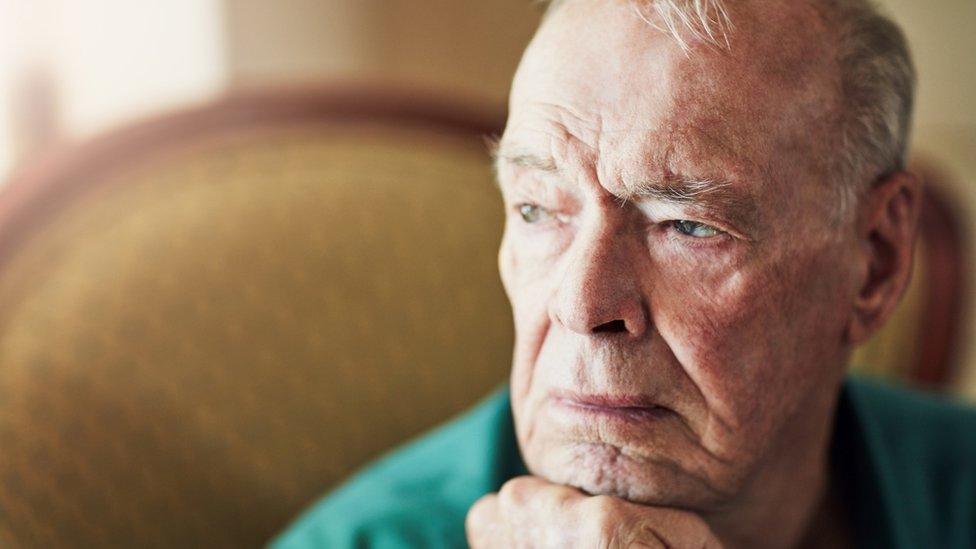Hospitals unable to discharge healthy patients due to care shortage
- Published
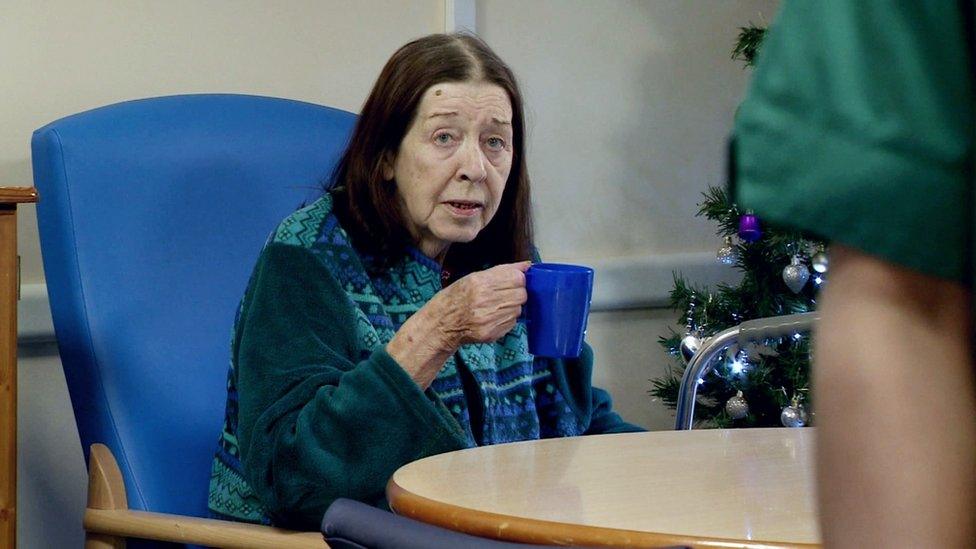
Janice McDonald is desperate to return home
Grandmother-of-two Janice McDonald remembers little of the fall that caused her to be admitted to hospital.
Janice, 74, was in the kitchen when it happened.
"I opened my eyes and it was horrendous, I couldn't move, nothing," she said.
Janice lives alone in a three-bedroom house in Cardiff.
She said the wrist alarm she was wearing had been a "godsend", as she could not otherwise have called for help.
'Desperate' to go home
Janice cannot remember going into hospital.
"I was in a total and utter fog, I thought I'd been beamed up and put in a soap opera.
"I thought, where the hell am I? What's happened? I was really bewildered until it was explained [to me] I was ill. It was awful, really frightening," she said.
Janice, who raised her two children on her own while working three jobs, has spent about six weeks in hospital.
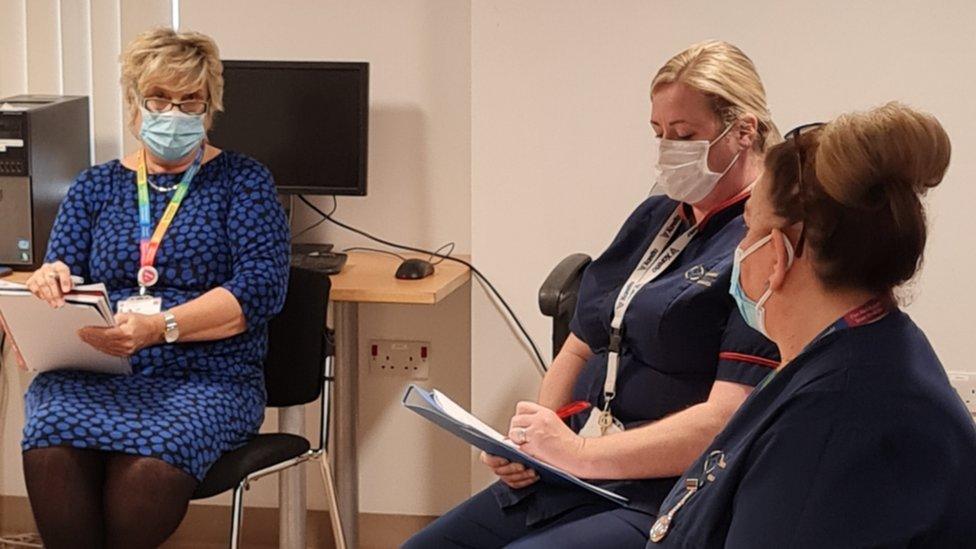
Judith Hill (left) says there is a lack of carers in the community
She said the staff were wonderful but she was desperate to go back home.
She is medically fit to leave and is spending her time in hospital in a new, nurse-led ward designed to build confidence and improve mobility so she can continue to live independently at home.
"I've always lived alone and I intend on carrying on living alone," she said.
The new ward, at St David's Hospital in Cardiff, is one of the initiatives designed to ease the increased pressure on acute hospital wards during winter.
The Welsh NHS Confederation said up to 15% of hospital beds are occupied by people who are medically fit to leave but don't have the right care in place to be able to return home.
These are known as delayed transfers of care.
Social care means help with things like washing, dressing and taking medication.
Patients cannot leave hospital unless they have the right care in place at home.
If the right care cannot be found, it means lengthy hospital stays, which can lead to ambulances queuing outside, as clinicians wait for spare beds.
So what can be done to ease the pressure?
The ward Janice McDonald is staying on is a pilot scheme designed to solve this problem - and it has been running for two months.
"It's proving successful. We're having three to five discharges per week. It's really positive," said Jane Andrew, the ward sister.
She said the ward helped reduce the number of ambulances queuing outside A&E, by moving patients who were almost ready to be discharged from more specialist, acute wards to nurse-led wards where patients needed fewer medical interventions.
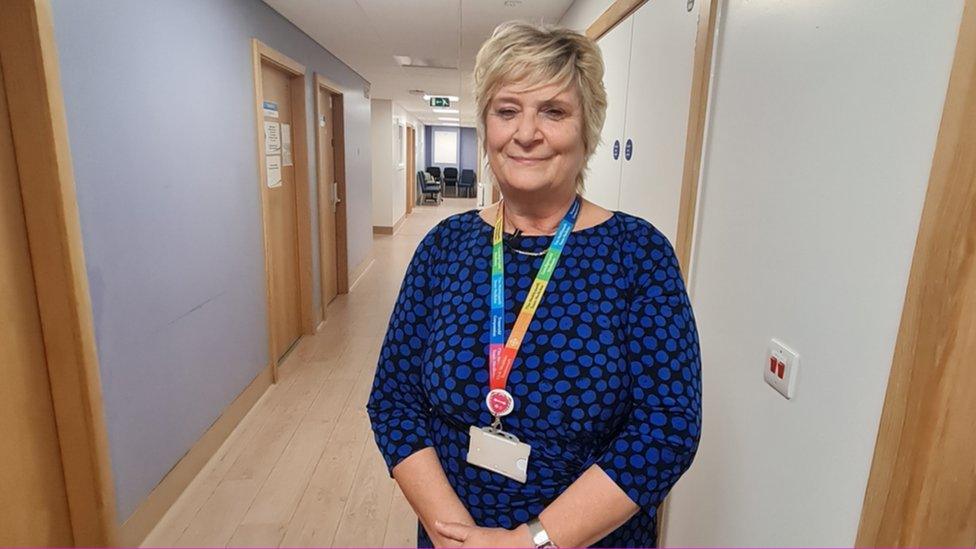
Judith Hill said there had been a "significant change" in the complexity of patients' needs
Fix the plumbing
Judith Hill is the head of integrated care for Cardiff and Vale University Health Board, Cardiff Council and the Vale of Glamorgan Council.
She works closely with Jane Andrew and manages the safe and timely discharge of patients, particularly those who need home care when they leave hospital.
Every day she meets with colleagues across health and social care to discuss each patient and what they need to leave hospital.
The problems range from organising nursing care, to fixing heating or plumbing or arranging support with getting washed and dressed.
Ms Hill said they could not discharge people as quickly as they could before the pandemic because patients were more frail due to lockdown, and the length of stays in the hospital had increased as a result.
"Most of that is due to the lack of capacity within our community settings - a lot of it down to the recruitment of carers.
"It's having a significant impact on how we manage the discharge of patients," Judith explained.
Judith said while there were concerns about additional pressure over the winter, both councils and NHS staff were prepared and had put plans in place.
"We are all exhausted but nevertheless we are so committed - that's what drives us. We feel passionately about what we do."
Career in care awaits
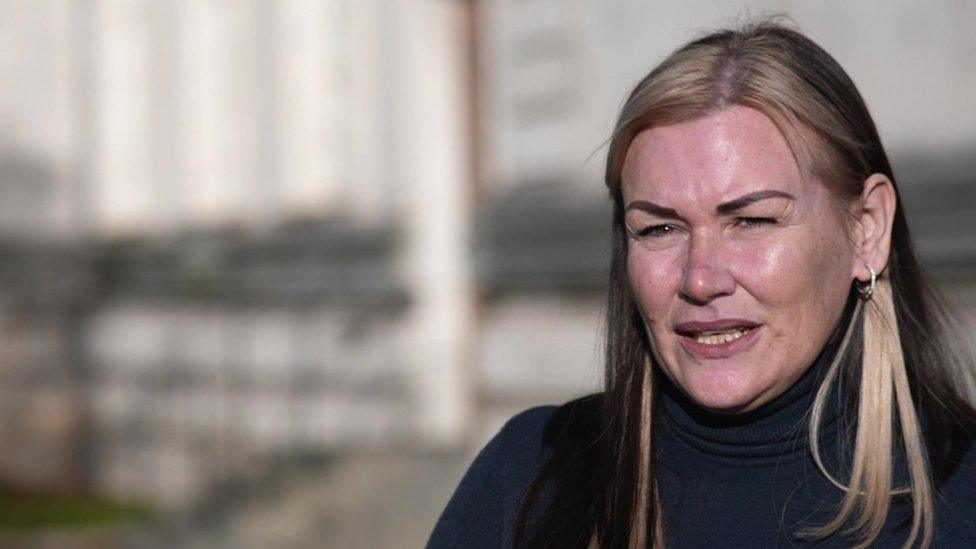
Nicola Bassett is about to embark in a career as a carer
Efforts are being made to recruit more home carers quickly.
Nicola Bassett recently graduated from Cardiff Council's Our Cardiff Cares Academy, external and has been offered a job as a home carer.
Nicola was an unpaid carer for her mum.
"I'm an only child and all me and my mum had was each other. She worked three jobs and was a single parent. Caring for her wasn't a job for me," she said.
"I thought there must be people who haven't got anyone and it means the world if I can make a difference." Nicola's caring abilities were clear when she worked at Tesco.
"I could see older people struggling so I'd help - they were so thankful.
"Helping them made me feel good and Covid-19 prompted me to go for a career in care. I'm really excited."

HAYLEY PEARCE PODCAST : Tackling the issues that make your group chats go off
COMING OUT: From secrets to social media, conversations from the LGBTQ+ community in Wales

- Published7 September 2021
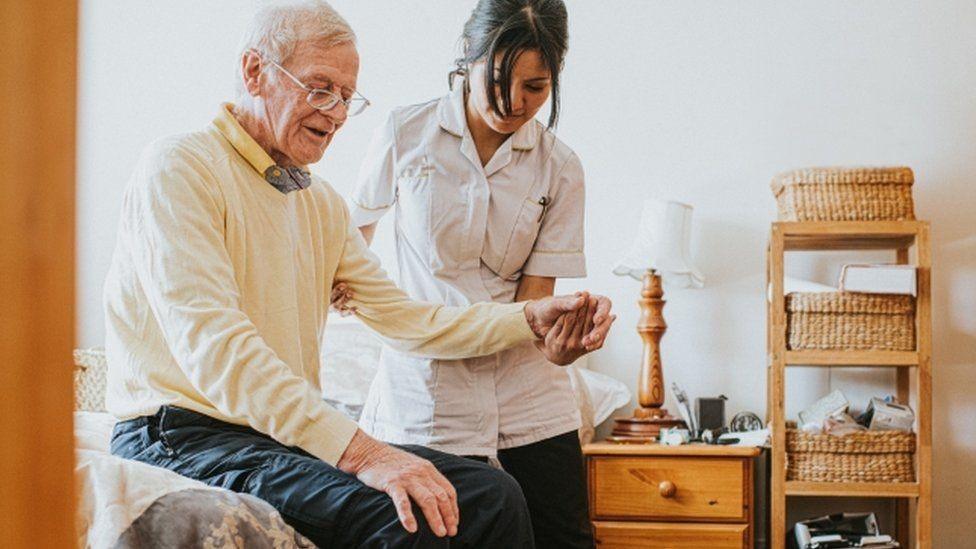
- Published20 November 2022
